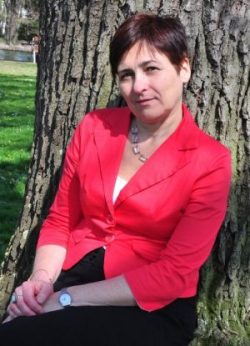Dear readers!
Starting from the assumption that there must be found a way out of the dilemma of terrorism and that the reasons for the crisis in the relationship between the Islamic world and the West must be overcome by working out a solution together, a group of German diplomats, who have formally served in Arab countries, addressed the EU with an open letter of appeal. We herewith publish this letter in complete version. In it they make proposals for an anti terror strategy of the EU in rather more concrete terms than they have made in a first letter, which 27 German diplomats addressed to the President of the European Parliament and the different parliamentary parties already on the February 17th 2005.
“The aim of these processes is to find out what the separating factors as well as uniting common grounds are; to make an approach by agreeing on principles for a rearrangement of the relationship; building up mutual trust and understanding by way of a ‘code of conduct’, which aims and regulates non-violent dealings in conflict situations for a peaceful coexistence”.
Therefore, this initiative “Diplomats for Peace with the Islamic World” with the paper “Principles for a rearrangement of Europe’s relationship with its Islamic neighbouring countries” is – as we think – an important and constructive contribution towards a peaceful solution. The physician, author and human right activist Hamid Fadlalla – for a long time advisory member of the Ibn Rushd Fund – comments.
Recently the Arab world has made first steps towards democratic elections (Iraq, Palestine). These approaches are yet still unsatisfactory, neither experts nor the common people in the Arab world have sufficiently enough dealt with the idea and practice of democracy – and how should they? There haven’t been yet many situations to test it. This is why the “Project for Democracy Studies in the Arab World” (London) calls for papers on democracy and parliamentary elections in the Arab world.
We also publish in this issue an explanation of the term “Arabism” by the Lebanese author Subhi Ghandur, Director of Markaz al-hiwar al-arabi (Center for Arab Forum) in Washington as well as a contribution by Rabiha az-Zira from Doha with an analysis of the term “personal Freedom”. Muhammad Ahmad az-Zubi, a sociologist living in Germany, gives an overview on the development of social democratic thought in the Arab world..
In his article on the reformer Mahmud Mohammed Taha the Sudanese author Taha Ibrahim describes how Mahmud Mohammed Taha had to pay with his life for his struggle for the renewal of Islamic thought in Sudan.
In our Ibn-Rushd-series Mohamed al-Mesbahi, Professor for Philosophy and Sociology at the University of Rabat in Morocco, describes Ibn Rushd’s (Averroes’) Weltanschauung.
Last but not least we end up our issue with contributions on literature, one article by Peter-Anton von Arnim and another by Khairy Douma. Can Goethe become a leading figure of a German Islam? This is the starting question to Peter-Anton von Arnim’s contemplations in his epilogue to Katharina Mommsen’s successful book Goethe und der Islam (Goethe and Islam). Minbar Ibn Rushd closes with Khairy Douma’s analysis on the historical novel as-Sa’iruna niyaman (The Sleepwalkers) by the Egyptian autor Sa’d Mikkawi.
I hope you enjoy your reading!
19.02.2006
Abier Bushnaq
(Editor-in-chief)



